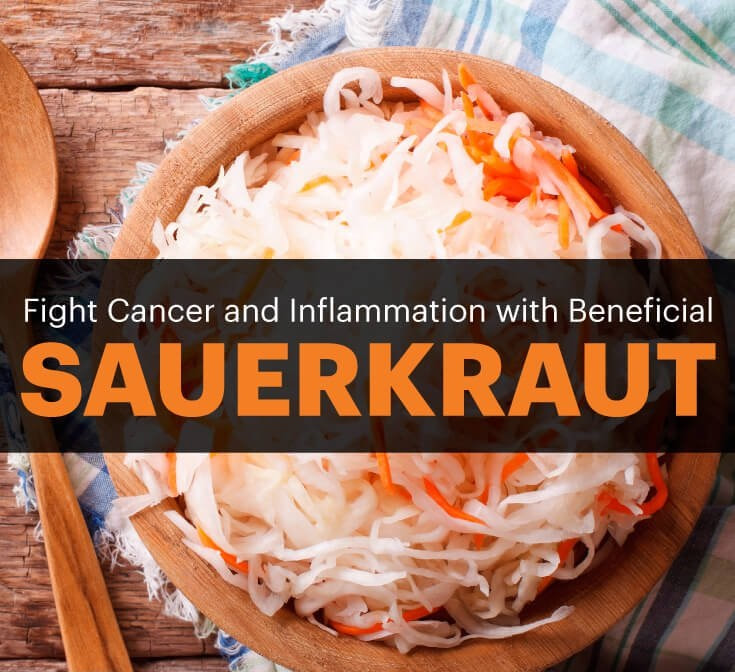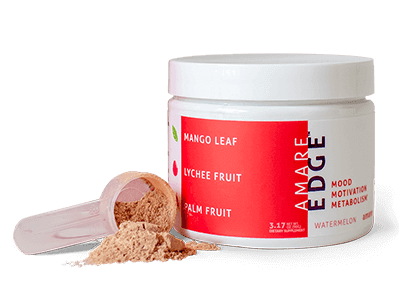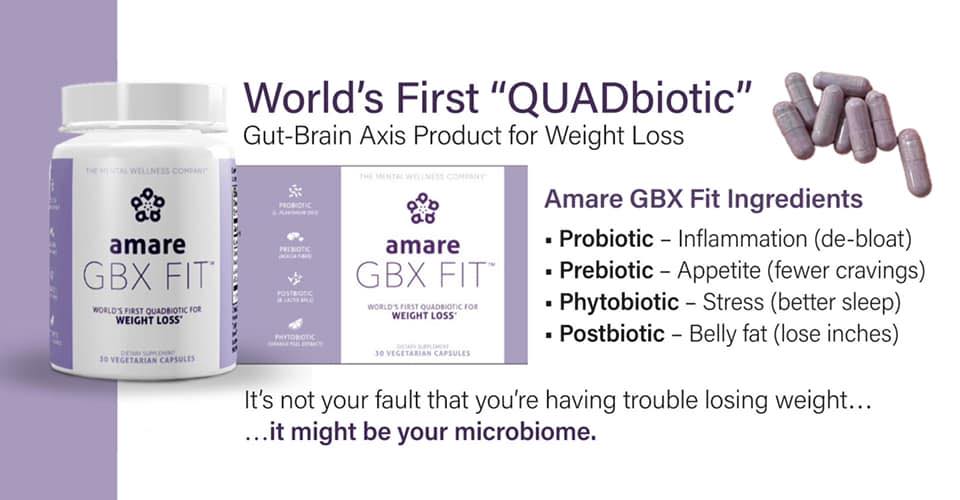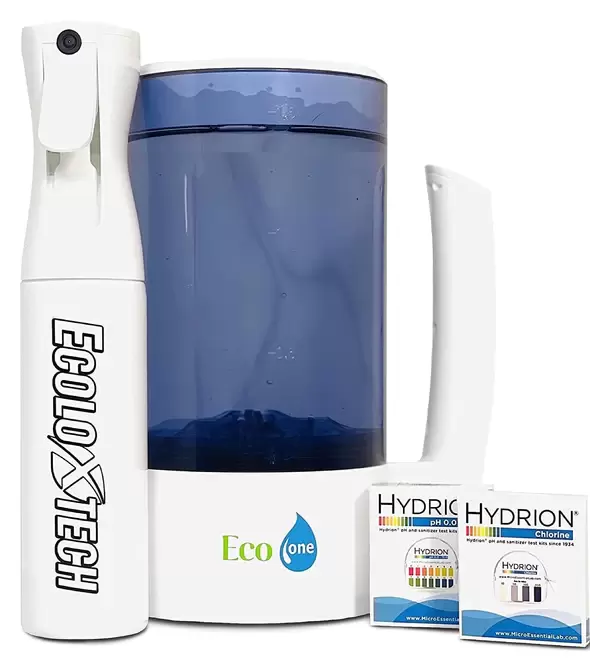|
According to the Institute for Integrative Medicine at the University of Witten in Germany, sauerkraut is one of the most common and oldest forms of preserving cabbage and can be traced back as an important food source to the fourth century B.C.
The Secret to Sauerkraut’s Health Benefits: Fermentation What is it that’s so special about fermented vegetables and foods? Fermentation simply refers to an ancient technique and perseveration method that naturally alters the chemistry of foods. Similar to cultured dairy products like yogurt and kefir, sauerkraut’s fermentation process produces beneficial probiotics that are now linked to improvements in immune, cognitive, digestive and endocrine function. People have been using fermentation to preserve valuable vegetables and other perishable foods for long periods without the use of modern-day refrigerators, freezers or canning machines. Fermentation is the metabolic process of converting carbohydrates, like sugars, into either alcohols and carbon dioxide, or organic acids. It requires the presence of a carbohydrate source (like milk or vegetables, which contain sugar molecules) plus yeast, bacteria or both. The yeast and bacteria microorganisms are responsible for converting glucose (sugar) into healthy bacteria strains that populate your gut environment and help regulate many bodily functions. Microbial fermentation occurs when the bacteria or yeast organisms are deprived of oxygen (which is why fermentation was first described as “respiration without air” by early French microbiologists that discovered the science behind the process). The type of fermentation that makes most foods “probiotic” (rich in beneficial bacteria) is called lactic acid fermentation. Lactic acid is a natural preservative that inhibits harmful bacteria growth. What Are the Effects of Sauerkraut’s Probiotics?First and foremost, sauerkraut’s live and active probiotics have beneficial effects on the health of your digestive tract — and therefore the rest of your body too. That’s because a very large portion of your immune system actually lives within your gut and is run by bacterial organisms, what you can think of as “your gut’s bugs” that live within your intestinal flora. Microbial imbalances have been associated with enhanced risks of various diseases, but luckily obtaining beneficial microorganisms from probiotic foods has repeatedly demonstrated health benefits in clinical settings. After eating foods like sauerkraut that provide probiotics, these gut bugs take up residence on the lining and folds of your intestinal walls, where they communicate with your brain via the vagus nerve. They also act like your first line of defense against various harmful bacteria or toxins that enter your body. Some beneficial probiotic bacteria found in sauerkraut and other cultured veggies are more or less permanent residents because they form long-lasting colonies. Others come and go more quickly but still have important anti-inflammatory effects. As described in a 2009 report published in The Indian Journal of Medical Microbiology, “the use of antibiotics, immunosuppressive therapy and irradiation, amongst other means of treatment, may cause alterations in the gut composition and have an effect on the GIT flora. Therefore, the introduction of beneficial bacterial species to the GI tract may be a very attractive option to re-establish the microbial equilibrium and prevent disease.” The good bacteria living in someone’s healthy gut environment have been proved to be crucial for lowering the risk of just about every form of acute or chronic illness there is. A 2006 report published in The Journal of Applied Microbiology states that probiotic benefits from cultured foods include lowering the risk of:
This is due to probiotics’ direct and indirect influences on various organs and systems, especially the rate at which your body produces inflammation and controls hormone production. The “good bacteria” and other organisms living within your gut might as well be considered an organ in their own right, because they’re critically important to the health of your brain, hormones, heart, lungs, liver and digestive organs. The latest science tells us that probiotic-rich foods can help:
Sauerkraut Nutrition Facts Sauerkraut is very low-calorie, but as you can see it’s an anti-inflammatory food and is packed with benefits. Besides having probiotics to offer, sauerkraut is a good source of antioxidants and dietary fiber too, thanks to its main ingredient cabbage. Even eating a small amount daily — just several tablespoons — can give you significant benefits and a great source of nutrients, including vitamin K, vitamin C, calcium, potassium and phosphorus — and of course probiotics too. As an added bonus, the proliferation of lactobacilli in fermented vegetables enhances their digestibility and increases absorption of their various vitamins. One reason you might want to stick to a smaller serving? It’s a bit high in sodium (with about 20 percent of your needs in every ½ cup serving) considering sea salt is one of the main ingredients, although real sea salt has its own set of benefits and sauerkraut’s perks definitely still outweigh this point. A half-cup serving of sauerkraut has about:
7 Benefits of Sauerkraut 1. Supplies Probiotics that Help Improve Digestion Microorganisms present in sauerkraut, including those of the lactobacillus bacteria genus, essentially “feed” the good bacteria in your gut, which improves digestive health. Research shows that within sauerkraut, lactobacillus plantarum is the predominant LAB bacteria strain that’s born during the fermentation phase. We still have a lot to learn about the exact types of beneficial bacteria that grow within cultured foods, but for the first time, a 2003 report published in The Journal of Applied Environmental Microbiology demonstrated the complex ecology present in sauerkraut fermentations. This provided new insights into the complex bioprocess of vegetable fermentations. Brine samples were taken from four commercial sauerkraut fermentation tanks over a 100-day period in 2001. A total of 171 phage isolates, including at least 26 distinct phages, were observed within the sauerrkaut. In addition, 28 distinct bacterial host strains were isolated and identified as LAB bacteria strains. These host strains included Leuconostoc, Weissella and Lactobacillusspecies Because they can help lower the presence of toxins, inflammation and bad bacteria living within your digestive tract, probiotics bacteria are beneficial for reducing symptoms like irritable bowel syndrome (IBS), constipation (yes, they help you poop!), diarrhea, bloating, food sensitives and digestive disorders. We often hear that probiotic yogurt is one of the best foods to eat for better digestion and preventing illnesses, but non-dairy cultured foods like sauerkraut have the same effects. In the process, sauerkraut and other fermented foods help you better absorb nutrients from the food you’re eating, regularly go to the bathroom and even help manage your appetite, thanks to their effects on hormones. 2. Improves Immune Function Although most people don’t realize it, the gut is your biggest immune system organ, and sauerkraut’s probiotics play a major role in regulating gut health. Beneficial bacteria can educate and support the immune system by controlling certain immune cells and preventing autoimmune reactions. Probiotics also control inflammation, which is a central feature of so many diseases facing us today. Recent scientific investigations have supported the important role of probiotics as a part of a healthy diet that can provide a safe, cost-effective and natural approach that adds a barrier against many types of microbial infections. Research has shown that probiotics can be effective at fighting diarrhea, antibiotic resistance, Clostridium difficile colitis, various infections, inflammatory bowel diseases, constipation and even cancer. Lactobacillus rhamnosus strains have been proven beneficial on intestinal immunity and can increase the number of IgA and other immunoglobulins cells in the intestinal mucosa. 3. Reduces Inflammation and Allergies Autoimmunity — one of the root causes of inflammation — is a state in which the body attacks its own tissues because it suspects that it’s being harmed by an outside “invader,” whether this is a food you’re sensitive or allergic to, toxins from household and beauty products, poor quality air and water, and so on. Sauerkraut’s beneficial probiotics help increase and regulate NK cells, which are nicknamed “natural killer cells,” that control the body’s inflammatory pathways and take action against infections or food allergy reactions. This, in turn, can lower your risk for developing virtually every chronic disease there is, from heart disease to cancer. 4. Protects Cognitive Health It’s not hard to image how our brain and digestive systems are connected — think of the last time you felt “sick to your stomach” or had butterflies in your belly from being nervous. Researchers are still learning about the fascinating and intimate relationship between your gut and brain, especially how this relationship is actually bidirectional, or a “two-way street.” It’s not just that your mood can affect your digestion, but it turns out that the health of your digestive system can also affect your nervous system, brain function and moods! All of this is possible because of the vagus nerve, one of 12 cranial nerves that helps form the primary channel of information between the nerve cells in your intestinal nervous system and your central nervous system in your brain. Communication via the vagus nerve is impacted by the various populations of bacteria in your gut. Depending on what kind of bacteria are present in different proportions within your gut, different chemical messages can be triggered that impact your ability to learn, remember and sort information. 5. Can Help You Handle Stress and Improve Your Mood Probiotics found in sauerkraut can help produce and release important digestive enzymes and digestive substances that collaborate with the chemicals in your brain. These include various nutrients like vitamins and minerals that are needed for proper neurotransmitter function and cognitive processes. Your brain literally needs to digest nutrients well — including amino acids and fatty acids — in order to produce hormones like serotonin or dopamine that regulate your moods. Probiotics help produce “happy hormones” and combat the effects of stress on your body, so sauerkraut might even be able to assist you in feeling more optimistic, having more energy and getting a good night’s sleep. 6. Beneficial for Weight Loss or Maintenance As you can see, the state of your gut health directly affects the way you think, feel, act and view the world! Because probiotics found in sauerkraut help regulate various hormonal functions, they can have a positive effect on your cravings and appetite control. Studies now even link intake of probiotic-rich foods with a lowered risk for obesity and easier weight loss. 7. Provides Cancer-Fighting Antioxidants Aside from the numerous benefits that sauerkraut’s probiotics offer, its main ingredient cabbage also has a lot going for it. Cabbage is a disease-fighting vegetable all on its own. Cabbage is among a group high-antioxidant foods and cruciferous vegetables known for being powerful cancer-fighting foods. One reason cabbage and other cruciferous foods have protective effects is because they supply various antioxidants and dietary fiber. Cabbage has phytochemicals, including sulfer compounds, isothiocyanates and indoles. In laboratory settings, these have shown protection against cancerous cell formation and have positive effects on lowering inflammation. Sulforaphane, a particularly potent member of the isothiocyanate family, is capable of increasing the body’s production of oh phase-2 enzymes that can help fight free radical damage. Although most sauerkraut is made from white or green cabbage, some varieties use purple cabbage too. Purple cabbage has its own class of special antioxidant properties called anthocyanins. These flavonoid phytochemicals, which are what give blueberries and wine their deep colors too, have strong antioxidant activities that help fight cardiovascular diseases, cancer and cognitive disorders. History of Sauerkraut and How It’s Made Sauerkraut is native to Eastern Europe, especially places like Germany, Poland and Russia where cabbage is considered a staple ingredient, even the “quintessential vegetable.” Sauerkraut, which means “sour cabbage” in German, first made its way over to the Unites States in the 1700s. It’s been said that immigrants coming over to the Americas at this time on ships carried sauerkraut with them on their long journeys because the fermentation process was able to preserve abundant amounts of harvested cabbage and also provide important nutrients. While fermentation might sound like a complicated process, it’s actually something that’s been practiced for thousands of years in one form of another in nearly every ancient population on Earth. Fermenting foods stops them from spoiling quickly, which is why it’s been a tried-and-true method for using up available vegetables, fruits, grains and legumes for thousands of years around the world. For example, beneficial kefir is a cultured dairy product first created in Eastern Europe thousands of years ago, miso and natto are fermented soy products stemming from Japan, and kimchi is a traditional fermented Korean staple side dish. Fermentation is also used to make all types of yogurts that have “live and active cultures” and in the production of beer, wine and some sourdough breads too (where yeast converts sugar to carbon dioxide). Some records show that ancient Chinese populations were pickling (fermenting) types of cabbage over 2,000 years ago. The Best Kinds of Sauerkraut to Buy and How to Make Your Own! The kind of sauerkraut you want to buy is the type that’s been prepared in the traditional way and is refrigerated in order to preserve the “live and active cultures.” These types can be found in health food stores and now in some larger grocery stores in the refrigerated section — NOT in room-temperature jars or cans! Keep in mind that many commercial food manufacturers have tried to standardize the fermentation process in order to produce larger quantities of cultured foods in less time. The result is that many mass-produced foods that were traditionally fermented (including sauerkraut, pickles or olives, for example) are now just treated with large amounts of sodium and chemicals and then canned. This type of product might be labeled “sauerkraut,” but it actually hasn’t gone through the proper process to develop probiotics. In some cases, cultured foods are also pasteurized to kill potentially harmful bacteria, which kills the probiotics we want in the process. Only true fermentation, without pasteurization, gives you the amazing probiotic enzymes, like lactobacillus for example, that have the benefits mentioned above. Homemade Sauerkraut Recipe Making sauerkraut is one of the most basic fermentation processes there is, so it’s a great place to start if you’re new to making your own cultured foods. All you need to make sauerkraut (or any fermented veggie for that matter) is simply the vegetable (in this case cabbage), water, salt and some patience! Lacto-fermented vegetables increase in flavor with more time, at least according to fermentation experts. Some traditional preparation methods call for the sauerkraut to rest for at least six months to become fully mature and beneficial, however many people ferment theirs for just one to two weeks successfully. One of the best thing about lacto-fermented vegetable condiments is that they’ll stay fresh and “alive” when stored in a cold place like the refrigerator for several months, instead of going bad within a week like fresh veggies do. To make your own sauerkraut, you simply clean one head of cabbage (any color) and chop it into small pieces or shreds, add your salt and massage the two together for several minutes, and then pack the mixture into a quart size glass jar that has a tightly fitting lid. After waiting for several days — you’ve got homemade sauerkraut beaming with live probiotics, fiber, antioxidants and other nutrients! Total Time: 20 minutes active prep; 4 weeks total Serves: Makes about 1 gallon INGREDIENTS:
DIRECTIONS:
In your screening for heart disease, I bet your doctor will never think to check your gut. And that may well be where your heart problems start. Let me explain… Your gut plays a critical role in your overall health. It’s a major part of your body’s ecosystem. It’s home to trillions of bacteria, viruses and fungi. They make up your “microbiome.” Doctors are beginning to pay attention when it comes to these bacteria. But they’re still missing the big picture. This microcosm affects just about every organ and body system. Some of these gut bugs cause disease and infection. Others boost your immune system. Still others help you digest your food and turn it into vitamins. The secret to vibrant health is having enough good microbes to crowd out the bad ones. When the “bad bacteria” in your gut crowd out the “good bacteria” you see an increase in disease and aging. Studies show that an imbalance in your gut bugs can cause chronic inflammation throughout your body. It’s been linked to autoimmunity, obesity, diabetes and chronic kidney disease. Now, new research shows that gut bacteria may be used to predict your risk of heart failure and other cardiac events like heart attacks and stroke. German researchers analyzed the gut bacteria in healthy people and patients with heart failure. They found that the heart failure patients were missing important groups of bacteria that fight inflammation. Their gut flora was not as diverse as in healthy people.1 In addition, heart failure patients had higher levels of trimethylamine N-oxide (TMAO), a product of some gut bacteria. In fact, TMAO may be an early disease marker for heart failure. In one study from the Cleveland Clinic, researchers measured TMAO in 4,000 people having elective coronary angiograms. TMAO levels predicted major cardiac events over the following three years.2 Another study from Cleveland Clinic found that heart failure patients with the highest levels of TMAO had a 3.4-fold increase in their risk of death.3 Antibiotics, stress, excess alcohol, chlorine and other toxins can destroy your good gut bugs and allow bad ones to thrive. I help my patients rebalance their microbiome with good bacteria called probiotics. You can take probiotic supplements. Look for one that guarantees 10-20 billion CFUs (colony forming units) at the expiration date. This is key. Probiotics are very sensitive to heat, humidity, pH levels and oxygen. Between the time of packaging and the time you take them, billions of the bacteria may die off. But a much better way to get enough probiotics is from the foods you eat. Just a few tablespoons of lacto-fermented foods a day can boost your good bacteria. I recommend making your own probiotic sauerkraut. You see, when you ferment cabbage with salt, good Lactobacillus bacteria multiply. But most commercial sauerkraut is pasteurized. That destroys ALL bacteria — good and bad. Here’s my favorite quick and easy sauerkraut recipe. Traditional Sauerkraut
1. Mark Luedde, Thorben Winkler, Femke-Anouska Heinsen, et al. “Heart failure is associated with depletion of core intestinal microbiota.” ESC Heart Failure. 2017. 2. Tang WH, Wang Z, Levison BS, et al. “Intestinal microbial metabolism of phosphatidylcholine and cardiovascular risk.” N Engl J Med. 2013. 3. Tang WH, Wang Z, Fan Y, et al. “Prognostic value of elevated levels of intestinal microbe-generated metabolite trimethylamine-N-oxide in patients with heart failure: refining the gut hypothesis.” J Am Coll Cardiol. 2014. |
|
||||||
| Quick Start Guide to Turmeric | |
| File Size: | 5178 kb |
| File Type: | |
Categories
All
10 REASONS TO EAT A TEASPOON OF BEE POLLEN EVERYDAY
12 Health Benefits Of Okra That Will Make You Love Greens
16 Detox And Health Secrets Of Wonder Root Radish
And Hashimoto’s!
And Obesity
ANTI INFLAMMATORY FOODS With CRAZY Powerful Healings Benefits
Benefits Of Vitamin D: The Sunshine Vitamin For A Healthier You
Chronic Fatigue
Coconut Milk And Coconut Oil: The Other 'Magic' Ingredients In Golden Milk
Coconut Oil ~ 101 Benefits & Uses You Can Take Advantage Of
Coconut = Plant Of Life
Coconut Water Is Good For Cancer Patients
Coconut Water Is Good For Chemo Patients
Coconut Water Nutrition Facts
Eat Jamaican Produce
Fermentation - The Secret To Sauerkraut’s Health Benefits
Fibromyalgia
Food As Medicine: Preventing And Treating The Most Common Diseases With Diet
Genital Herpes Treatment
Heart Disease
Herbal Treatment For Herpes
Here Are Some Descriptions Of Herbal Actions In The Body
Here Is Why Bell Peppers Are The Best Vegetables
Homemade Probiotics
How To Eat Apricot Seeds (Vitamin B17 Or Laetrile) For Cancer Treatment And Cure Chronic Diseases
Jamaican Ground Provisions
Jamaican Has Great Foods And Fruits
Lupus
Makr Your Own Probiotics
Organic Pure Sulfur MSM
Raw Or Cooked?
Rheumatoid Arthritis
Secret Health Benefits Of Sauerkraut
The Incredible Health Benefits Of Kiwi Fruit
THIS CRUCIFEROUS VEGETABLE DETOXIFIES THE LIVER AND SOOTHES INFLAMMATION
This Herbal Tea Helps In Cases Of Multiple Sclerosis
This Is What Happens To Your Body When You Drink Coconut Water
Top 15 Alkaline Foods That Can Prevent Cancer
Vitamin B6 Deficiency Symptoms: Are You At Risk?
What Are The Natural Remedies For Cataracts?
What Are Trace Minerals? Why Does The Body Needs Them To Function?






 RSS Feed
RSS Feed










